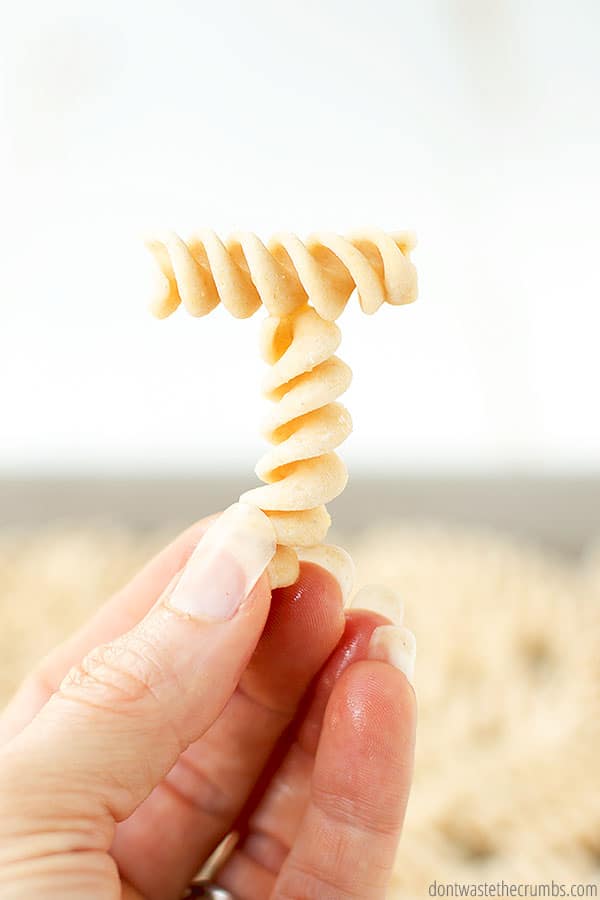How To Freeze Cooked Pasta
Store frozen pasta in the freezer so you can reheat it whenever you want to make different kinds of pasta. You can have cooked pasta that’s ready to freeze in just three simple steps.
Can You Freeze Cooked Pasta?
Yes, exactly! You might be surprised at how often you’ll have the chance to freeze pasta!
- Batch cooking is the deliberate preparation of more food in order to avoid having to cook later and save time. It works well with basic foods like cooked pasta, spaghetti sauce, and spiced ground beef.
- Pasta leftovers: Freezing leftover pasta is a simple method to minimize food waste and maximize your grocery budget if you prepare more than your family can consume.
- Cook Once, Eat Twice: To save time and effort this week, cook the pasta only once and freeze it for later use if it is on your menu twice.

How Long is Pasta Good For In The Fridge?
Pasta that has been cooked usually keeps in the refrigerator for three to five days. It’s critical to store cooked pasta correctly to extend its shelf life and preserve its quality:
- Cooling Fast: After cooking, let the pasta cool down as soon as possible. This aids in halting the development of bacteria that may cause foodborne infections. To quickly cool the pasta, you can either run it under cold water or submerge it in an ice bath.
- Storage: Transfer the cooked pasta to a resealable plastic bag or an airtight container once it has cooled. This keeps the texture and flavor of the pasta from being impacted by moisture and smells.
- Sauce Separation: When the pasta cools and the sauce thickens, if you’ve combined the two ingredients, there may be some separation. This is normal; just give it a stir when reheating.
- Smell and Texture: Smell and visually inspect leftover pasta before consuming it. It’s best to throw it away if it smells bad or if the texture has changed significantly.
Keep in mind that these guidelines are general recommendations. Pasta’s shelf life can be impacted by a number of factors, including the refrigerator’s temperature, how clean the utensils are, and the pasta’s original quality. When deciding whether leftover pasta is still edible, put food safety first and rely on your intuition. When in doubt, it’s best to take the cautious route and avoid consuming it.
